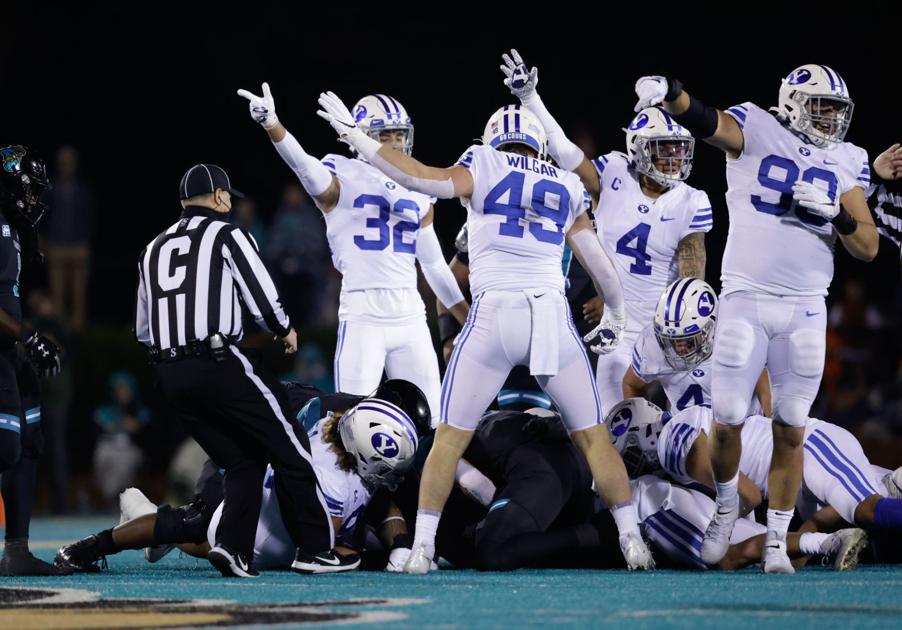
As another college football season starts to get into the swing of things, we are still in the stage of the year where we have stacked matchups such as New Mexico State at Alabama, Charlotte @ Clemson and New Southeast Brunswick Hampshire ITT @ some elite NCAA program.
I am personally all for these contests because I believe they help both schools. The major conference school gets a tune-up game and a probable win, while the smaller schools cash out.
But the scores of these matchups sometimes get out of hand. Last week, Idaho lost to Penn State, 79-7. In no reasonable world can 79-7 be considered not running up the score, which brings me to my next point: There were no repercussions, backlash, or even a blink of an eye when the Nittany Lions piled on an extra touchdown, or seven.
However, I am struggling to understand how is this any different than when the U.S.A Women’s Soccer team beat Thailand, 13-0? When the Stars and Stripes dominated their World Cup opponent, people were running at them with burning pitchforks
This got me thinking. Are these two scenarios different? Or are there larger factors at play here?
In both college football and the World Cup, there are benefits to beating the opposition by a large margin.
In World Cup Group stage there is a point differential at hand. Did the U.S. likely need all these goals? No. But it is always better to be safe than sorry. Head Coach Jill Ellis could have been ripped apart if the Stars and Stripes pulled off early and didn’t qualify for knockout stage via goal differential.
The Same concept can be applied to NCAA football and the College Football Playoff system. How much a team wins by is a huge element in selecting the four teams that will qualify for the end-of-season tournament. If a team like Clemson only beat Charlotte by three points, it could potentially cost them their playoff berth.
Another interesting factor in this debate is whether pulling off the troops is actually more humiliating for your opponent.
In a football game, if a team started kneeling on the ground or a running back fell over untouched in the second quarter, this could potentially be embarrassing to the losing squad. The same can be said for a soccer team stopping their attacks on goal in the 30th minute of the contest.
There is something inherently wrong with throwing a 50-yard touchdown strike in the final seconds of a blowout or scoring a goal in stoppage time, but any good team plays the best that they can play. And limiting one’s own abilities not only hinders a squad’s success, it brings down the competition level of the entire league. If an opponent can’t stop you, is that your fault or theirs?
Last year, when I was coaching a 5th-grade basketball team, my squad was losing by twenty points and the other coach pulled his team off. I was absolutely infuriated that he stopped trying to score the ball, it felt like a slap in the face. Watching the opposition pass the rock around for minutes before trying to put the ball in the hoop brought the contest to a standstill. It didn’t allow my team to grow, and it limited his players as well.
But if he had run up the score, 99-1, I probably still would have been mad. Nobody likes to lose but being a good loser is a crucial life skill; if you can’t be graceful in defeat, you’ll never be a composed winner.
Life lesson from Nick complete. But seriously, I don’t think the other coach had a clear-cut right answer.
Back to the article at hand.
The most dominant factor in this running up the score debate may be gender. Many analysts believe that if the U.S. Men’s Soccer team did the exact same thing that people wouldn’t have cared. This concept could be true, but no one really knows.
There have been many male teams that embarrassed their opponent throughout the history of U.S. sports without repercussions—that is undeniable. But to say that a person truly knows whether or not the U.S. Men’s team would have faced backlash is all speculation.
For me to pick a side and say that the U.S. Women shouldn’t have beat the brakes off of Thailand is something that I don’t feel comfortable doing. I also don’t feel just saying whether or not Penn State should have beat Idaho, 79-7.
But I do feel that there needs to be a clear-cut stance on the issue. For pundits to chastise the U.S. women’s team and to ignore college football teams who do the exact same thing is a biased stance.
Bottom line is, there are definitely reasons for both teams to run up the score. Is it moral? I don’t know; that depends on your ethical standards. And there is no right or wrong when it comes to ethics.




